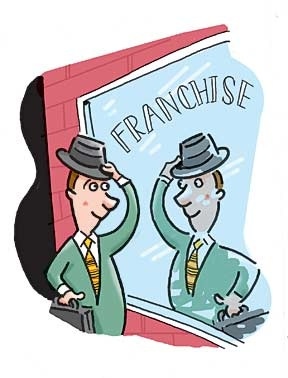Look Before You Leap Into A Managed Services Franchise
At first glance, franchises are for fast food and retail stores. But franchises are popping up in the managed services market, and quite a few are successful. Still, franchises aren't for everyone. I had lunch the other day with a franchise consultant who helps people find a franchise that’s right for them. Here are some key thoughts from the conversation.
September 24, 2008

By Mitch York 1
 At first glance, franchises are for fast food and retail stores. But franchises are popping up in the managed services market, and quite a few are successful.
At first glance, franchises are for fast food and retail stores. But franchises are popping up in the managed services market, and quite a few are successful.
Still, franchises aren’t for everyone. I had lunch the other day with a franchise consultant who helps people find a franchise that’s right for them. Here are some key thoughts from the conversation.
During our chat, we agreed that for the past half-decade or more, franchising has been driven to some degree (I think a large one) by middle-aged Baby Boomers who grew tired of their jobs in corporate America and found an easy way to buy themselves a job through the equity in their homes. They bought an unprecedented number of franchises, writing checks from easy-to-get equity lines of credit.
I knew some of those people personally–the ones who would have been better off spending $10,000 on a Club Med vacation, rather than $200,000 on a franchise, because all they really needed was a change of scenery for a while. Now, many of those people have closed their businesses because they did not find the success that their franchisor and their own fond wishes had promised them. Along with shuttered businesses, many have lost homes and/or their kids’ college savings.
I’m not one to look for silver linings in bad news. The stories I have heard are harrowing. There’s no “Oh, well, it’s a learning experience” to be said when someone loses their house.
Real Players Enter the Market
The future landscape, which became a reality in the last month but has been taking shape all year, looks very different. My friend the franchise consultant is already seeing it in the people who come to him looking for a business to buy. The people who were going to buy a franchise out of boredom, or because they couldn’t find a job after a layoff, are gone. They are being replaced by people with maturity, management experience and cash.
It turns out that not everyone can or should own their own business. Entrepreneurship is not something everyone can do. That’s why, when I’m asked by prospective franchisees about whether the particular franchise I own might be good for them, I do everything I can to get them to run for the hills. If they’re crazy enough to be entrepreneurs, they don’t need encouragement from me. They’ll go ahead and do it anyway.
MSPmentor contributing blogger Mitch York coaches executives who are evolving into entrepreneurs. He is a veteran of high-tech media and an entrepreneur himself. Find York — and his personal blog — at www.e2ecoaching.com.
You May Also Like
